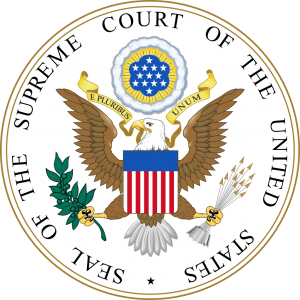
The Supreme Court has ruled, in the Case of Alabama Association of Realtors, Et A. v.
Department of Health and Human Services, Et Al., that the Centers For Disease Control lacked the necessary authority to invoke a moratorium against evictions.
From The Order:
“The District Court produced a comprehensive opinion concluding that the statute on which the CDC relies does not grant it the authority it claims. The case has been thoroughly briefed before us—twice. And careful review of that record makes clear that the applicants are virtually certain to succeed on the merits of their argument that the CDC has exceeded its authority. It would be one thing if Congress had specifically authorized the action that the CDC has taken. But that has not happened. Instead, the CDC has imposed a nationwide moratorium on evictions in reliance on a decades-old statute that authorizes it to implement measures like fumigation and pest extermination. It strains credulity that this statute grants the CDC the sweeping authority that it asserts”
Quick Notes:
Stephen Breyer, on behalf three liberal Justices wrote for the dissent.
First, it is far from “demonstrably” clear that the CDC lacks the power to issue its modified moratorium order. The CDC’s current order is substantially more tailored than its prior eviction moratorium, which automatically applied nationwide. Justified by the Delta-variant surge, the modified order targets only those regions currently experiencing skyrocketing rates. 86 Fed. Reg. 43244, 43245, 43250 (2021).
If a covered county “no longer experiences substantial or high levels of community transmission,” the order “will no longer apply” there. Id., at 43250. To illustrate the difference, when we denied applicants’ last motion, fewer than 20% of counties would have been covered under the modified moratorium order’s criteria. See CDC, COVID–19 State Profile Report 476 (June 25, 2021). Today, however, that figure is over 90%. See infra, at 7.
To be protected from eviction, a tenant must reside in a
covered area and attest that he or she:
(1) has “used best efforts to obtain all available governmental assistance for rent or housing”;
(2) satisfies certain income requirements;
(3) is unable to pay rent “due to substantial loss of
household income, loss of compensable hours of
work or wages, a lay-off, or extraordinary out-of-pocket
medical expenses”;
(4) continues to “us[e] best efforts to make timely partial rent payments that are as close to the full rent payment as . . . permit[ted]”; and
(5) has “no other available housing options.” Id., at 43245.
Apparently, millions of Americans are now immediately subject to eviction.
scotus eviction







Pingback: Rhode Island Reacts To Supreme Court Edict Ending The Eviction Moratorium - Coalition Radio Network